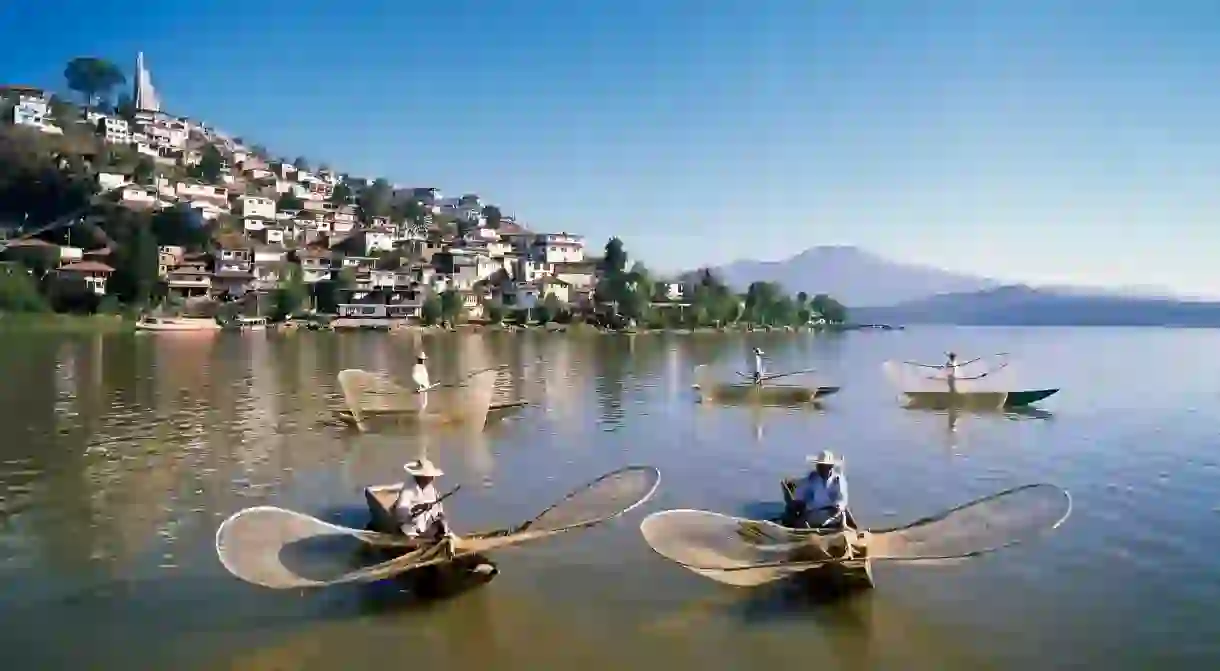The Most Spectacular Islands in Mexico You Need to Visit

In recent years, Cozumel and Isla Holbox have grabbed the international spotlight, with tourists flocking there to enjoy the turquoise waters and unblemished beaches. Yet there are plenty more under-the-radar islands in Mexico waiting to be discovered. Here’s our pick of the best.
Did you know – Culture Trip now does bookable, small-group trips? Pick from authentic, immersive Epic Trips, compact and action-packed Mini Trips and sparkling, expansive Sailing Trips.
Cozumel

Just off Mexico’s Yucatán Peninsula, the Caribbean island of Cozumel has become very popular with tourists looking beyond the more touristy locations of Tulum and Cancún. Cozumel has all of the ingredients for a fantastic island experience – white sand beaches, warm waters and great food. The tiny island is also a world-class diving destination and is surrounded by the Mesoamerican Barrier Reef, the second-largest coral reef system on the planet.
Isla Holbox

Named by The New York Times as one of the 52 Places to Go in 2016, this undeveloped island paradise has a more laid-back feel than the mainland resorts. Located within the vast Yum Balam biosphere reserve, Holbox houses an incredible range of wildlife, including endangered sea turtles, crocodiles, flamingos and pelicans. With no private cars, only one ATM and patchy phone coverage, the island is still firmly grounded in sleepy village mode.
Isla Contoy

The secret may be out on Isla Holbox, but nearby Isla Contoy is still practically unknown outside of Mexico. Measuring just 5mi in length (8.5km) and little more than 1,600 ft (500m) at its thickest point, the island can be easily explored in a day. In fact, the destination is so tiny the Mexican government has imposed a maximum capacity – only 200 guests are allowed each day. Nature lovers will feel at home on Isla Contoy – the island is a sanctuary for four species of turtle and approximately 152 tropical species of bird.
Isla Mujeres

Just 8mi (13 km) from Cancún, Isla Mujeres has a somewhat similar vibe, offering thumping nightlife and numerous all-inclusive resorts. Playa Norte (North Beach) is the island’s most famous stretch of sand and the surrounding coral reefs offer fantastic snorkeling and diving opportunities. At the other end of the island, you’ll find a lighthouse and the ruins of a Mayan temple.
Isla Janitzio

This island on Lake Pátzcuaro is famed for its extraordinary Day of the Dead celebrations but is worth a visit year-round. One of five islands on the massive lake, Janitzio can be reached by a short boat ride from the town of Pátzcuaro in the state of Michoacán. The island is a cultural and spiritual center for the indigenous Purépecha people and is also known for its fishermen, who use butterfly-shaped nets to snare their daily catch. For the Day of the Dead festivities, the island’s cemetery fills with candles as locals hold vigil next to the graves of deceased loved ones.
Isla de Mezcala

This tiny island can be reached by boat from the town of Mezcala, which nestles Mexico’s largest inland body of water, Lake Chapala. The uninhabited island contains a small fortress and was the site for several battles during the War of Independence. The island is also a sacred site to the indigenous Cocas, who are fighting to preserve their ancestral territory from foreign property developers.
Isla Agaltepec

Located on the mysterious Lake Catemaco in eastern Mexico, Isla Aglatepec currently has around 100 inhabitants, all of them Mexican howler monkeys that were moved from nearby municipalities because of the threat from poachers. No human visitors are allowed on the island but boat tours from the nearby town frequently take tourists close so they can glimpse the monkeys and wildlife. The island is often referred to as Crocodile Island because of its shape.
Isla Espíritu Santo

The untouched paradise of Isla Espíritu Santo, or Holy Spirit Island, is one of Mexico’s most stunning destinations. Situated between the Baja California peninsula and the mainland, the island is surrounded by the Sea of Cortez, which was memorably described as ‘the world’s aquarium’ by the explorer Jacques Cousteau. Designated a World Heritage Bioreserve by Unesco, the island offers beautiful hiking trails, as well as snorkeling and diving opportunities. Keep an eye out for black-tailed jackrabbits – the big-eared hare is native to the island.
Islas Revillagigedo

This archipelago of four volcanic islands lies way out in the Pacific Ocean. Isla Clarión is the most remote island and is situated more than 430mi (692km) from Cabo San Lucas, the nearest mainland city. Despite being the second-largest island in the archipelago, the island has a total population of only nine – all military personnel manning the island’s barracks. Last year, the Revillagigedo Archipelago was designated a Unesco World Heritage Site, as well as declared a national park of Mexico. The easiest way to get to the islands is via a boat journey lasting more than 25 hours.
Isla María Madre

Designated a biosphere reserve by Unesco in 2010, the Isla Marías archipelago of four islands is noted for its unusual fauna. Because it was uninhabited for more than eight million years, the islands contain many rare and endangered species. Isla María Madre is the largest island in the archipelago and is located around 65mi (104km) off the coast of Nayarit state. The island has a population of around 1,100 citizens.
Isla Tiburón

With a total area of 464sqmi (1,200sqkm), Isla Tiburón is the largest island in the country. Apart from two Mexican military encampments, it is currently uninhabited. As the area is part of the ancestral homeland of the indigenous Seri people, the island is controlled by the Seri tribal government in cooperation with the Mexican federal government. As a result, hikers and overnight visitors need to apply for permits from the Seri government.













